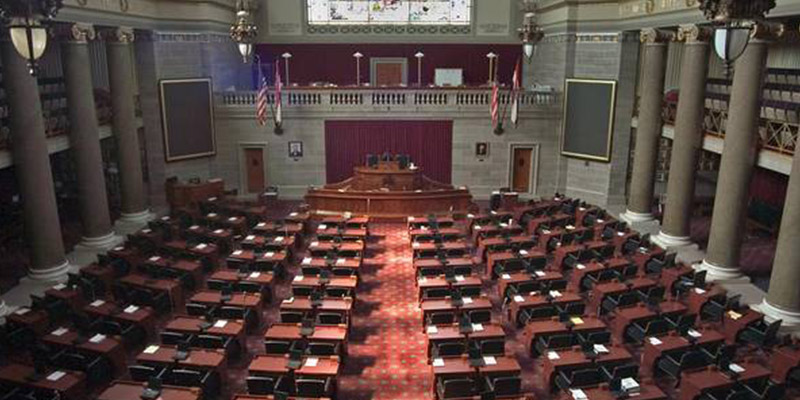JEFFERSON CITY, Mo – Marking a shift in the normally partisan votes on tax policies, Missouri Democrats almost unanimously supported a bill last week that would adjust Missouri tax brackets by using the Consumer Price Index.

The bill, sponsored by Rep. Paul Curtman, R-Pacific, will adjust tax rates based on inflation. Currently, Missouri’s tax code remains dated, with the top rate in the state applying to all income over $9,000 dollars. There are nine other brackets below $9,000 as the code was originally written in the 1930’s.
“Inflation adjustment mechanisms make sense in public policy in general,” Kansas City Democrat Jon Carpenter said. “I think I join most of my colleagues on my side of the aisle in saying I would prefer a much broader package for tax relief. I believe this is merely a partial step, but one that I support taking.”
Democrats have largely opposed Republican-backed tax cuts, which they often say go too far, drastically reducing state revenues. The loss in revenue, Democrats say, will hurt state services and reduce funding for education.
Republicans have vowed to cut taxes during this legislative session following a bitter veto override effort on last year’s sweeping tax cut bill, HB 253. Missouri Democrats have largely argued that Republican tax cuts focus too much on the wealthiest citizens and do not provide enough tax relief to poor Missourians.
Carpenter has repeatedly attempted to amend his own tax plan — one that moves Missouri’s tax code to a progressive tax based on income level — onto several Republican tax cut bills being debated on the floor. Thus far, he has been unsuccessful, but Carpenter’s legislation largely reflects Democrat’s thinking on tax cuts: that rates should go down for the poorest Missourians but increase for the wealthiest.
“I’m glad my Republican colleagues support an inflation adjustment mechanism,” Carpenter said. “I hope they support inflation adjustment on the state minimum wage, which voters approved by a 52-point margin, but which the Republican-lead House voted to repeal in 2011.”
Collin Reischman was the Managing Editor for The Missouri Times, and a graduate of Webster University with a Bachelor of Arts in Journalism.



